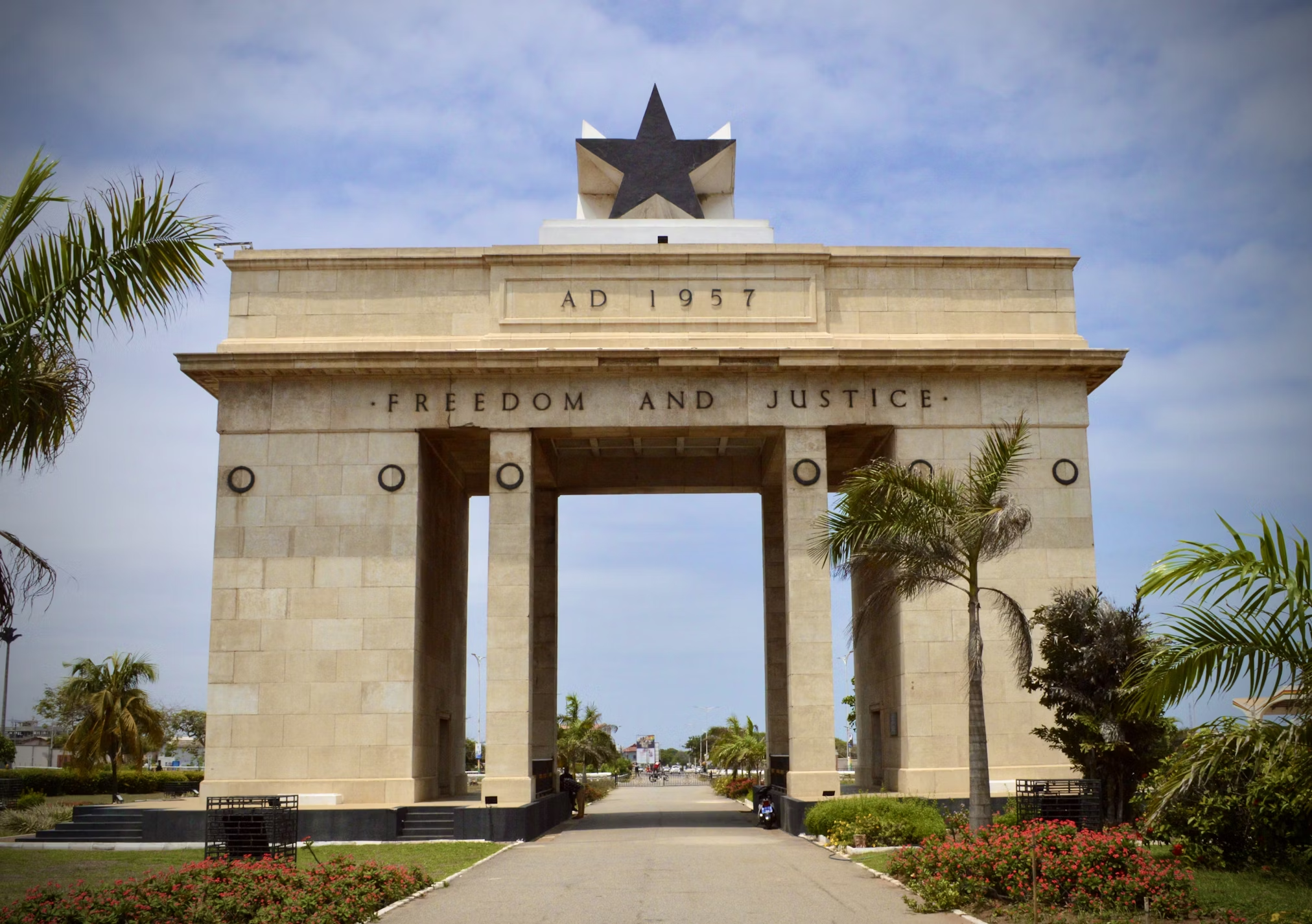U.S. citizens can pursue Ghanaian citizenship by naturalization after long-term legal residence. (There is also a special Right of Abode (RA) for persons of African descent or former Ghanaians, which grants indefinite residency but not citizenship.) The steps below outline a typical timeline—from entry to citizenship—citing Ghana Immigration Service (GIS) and Ministry of Interior guidelines for processing times and requirements.
Initial Entry & First Residence Permit
- Day 1: Arrive in Ghana with a valid entry visa (e.g. work, business, study). At entry, begin the process of legal residence. If you qualify as Ghanaian by descent or African diaspora, you may simultaneously apply for Right of Abode (RA). RA is granted by the Interior Ministry (with Presidential approval) roughly 6 months after Immigration due-diligence. RA confers permanent-residence rights (visa-free entry and work-permit exemption). If not on RA, immediately apply for a one-year Residence/Work Permit through GIS: submit the application forms along with your passport, sponsor or employment letter, medical report, photographs, etc.
- Day ~45 (Weeks 4–6): First Residence Permit issued. Processing typically takes about 4–6 weeks when documents are complete. You will receive a one-year permit and a Non-Citizen ID card. Keep this card and passport pages as proof of status. The permit allows you to live and work legally; you must renew it annually.
- Day 365 (Year 1): Renew the one-year permit (GIS generally allows renewal each year). Continue annual renewals thereafter, maintaining continuous Ghana residence. (Each renewal requires updated paperwork but is usually routine if you remain employed or sponsored.)
Indefinite Residency (Year 5+)
- Day ~1825 (Year 5): After about five years’ residence, you become eligible to apply for an Indefinite Residence Permit. At this point submit the Indefinite Permit application: complete the GIS form and gather supporting documents (passport, photos, cover letter, sponsor/spouse letter, Ghanaian partner’s passport if any, CV, proof of 5-year residency, tax/SSNIT clearances, audited accounts, company certificates, property deeds, etc.). (For example, the Ministry notes spouses and long-term expats with >5 years in Ghana can apply.)
- Day ~1860 (4–6 weeks later): Indefinite Permit approved. GIS aims to process Indefinite Residency within ~4 weeks after a complete application. Once granted, you have indefinite stay (entry/work without yearly renewals). The Indefinite Permit is akin to permanent residency. (If you already have RA status, it serves the same purpose: RA holders do not need a separate Indefinite Permit.)
- Parallel – Right of Abode: If you applied for RA as a person of African descent, you would receive RA about 6 months after application. RA requires its own documents (application letter, Ghanaian referee affidavits, proof of contribution to Ghana, police clearance, etc.) but once approved it allows indefinite residency identical to an Indefinite Permit. RA holders skip the annual renewal cycle, but still must formally naturalize (below) to become citizens.
- Days 1825–2190: Maintain uninterrupted Ghana residence. Ghana’s Citizenship Act requires that, to naturalize, you have lived continuously in Ghana for the 12 months immediately before applying and a total of at least 5 years in the 7 years before that. (Holding an Indefinite Permit or RA helps meet this residency condition.) Also ensure compliance: remain of good character, obey laws (no criminal record), and engage in Ghanaian society.
Applying for Citizenship (Naturalization)
- Day ~2190 (Year 6): Submit the Naturalization Application (Form 5) to the Ministry of Interior. By now you should meet the residency rules. Gather all required documentation: Form 5 plus Sponsor Form 14; a formal cover letter to the Minister; copies of your current Residence or Indefinite Permit; passport bio-data page; and four passport photos. Additionally, include proof of economic contribution or family ties as applicable: for business/investors, Ghana Company Code, Certificate of Incorporation, Audited Accounts, Tax Clearance Certificates, SSNIT contributions, etc. For property owners, attach land indentures. (If married to a Ghanaian, include spouse’s Ghanaian passport, marriage certificate and consent letter.) Provide two Ghanaian referees’ written attestations (notaries or senior officers). Essentially, submit the package complete – the Ministry requires all forms, affidavits, clearances and evidence of livelihood/character.
- Days ~2190–2380: Ministry of Interior review period (≈6 months). During this time your application undergoes vetting and interviews. Expect background checks (e.g. Ghana Police ID check – a current Ghana police report is required), and possible questioning on your integration. By law you must demonstrate good character and an ability to speak a Ghanaian language. Typically no personal interview is required for residency permits, but it is common during citizenship review; be prepared to answer questions or provide any further evidence of your assimilation and intentions.
- Day ~2380: Citizenship decision. The Ministry aims to decide within about 6 months of a complete application. If approved, you are notified to take the official Oath of Allegiance. (Until you take this oath, you remain a foreign resident.)
- Day ~2390+: Take the Oath of Allegiance (required by law). Upon swearing the oath at a ceremony, you immediately become a Ghanaian citizen by naturalization. The government then issues your Certificate of Naturalization, which is proof of Ghanaian citizenship (allowing you to apply for a Ghanaian passport, vote, hold public office, etc.).
Key Distinctions: Right of Abode vs Naturalization
- Right of Abode (RA) is permanent residency, not citizenship. It allows indefinite stay, visa-free entry, and work without a permit, but RA holders cannot vote or hold Ghanaian passports. RA expedites residence but does not skip the citizenship process.
- Naturalization (citizenship) requires meeting stricter criteria (continuous residence + language + character + contributions), formal approval, and taking the oath. Only after the oath do you gain full citizenship status. In practice, RA or Indefinite Residency helps you fulfill the residency requirements for naturalization, but you must still apply (Form 5), pass the 6-month vetting, and take the oath to actually become a citizen.
Sources: Ghana Ministry of Interior and Immigration Service guidelines (Naturalization and Residence Permit requirements and timeframes), plus official documentation requirements.



